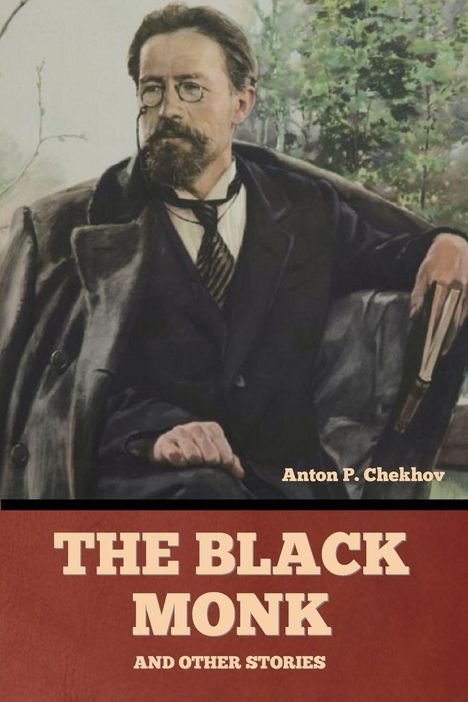Anton Pavlovich Chekhov: The Black Monk and Other Stories, Kartoniert / Broschiert
The Black Monk and Other Stories
(soweit verfügbar beim Lieferanten)
- Verlag:
- Bibliotech Press, 08/2025
- Einband:
- Kartoniert / Broschiert
- Sprache:
- Englisch
- ISBN-13:
- 9798897732180
- Artikelnummer:
- 12409871
- Umfang:
- 130 Seiten
- Gewicht:
- 223 g
- Maße:
- 229 x 152 mm
- Stärke:
- 8 mm
- Erscheinungstermin:
- 14.8.2025
- Hinweis
-
Achtung: Artikel ist nicht in deutscher Sprache!
Klappentext
"The Black Monk, and Other Stories" by Anton Pavlovich Chekhov is a collection of short stories by one of Russia's greatest literary masters. The title story, "The Black Monk," is among Chekhov's most profound and philosophical works, exploring themes such as genius, madness, and the burdens of intellectual life.
The Black Monk centers around Andrey Kovrin, a scholar who begins experiencing visions of a mysterious black monk who tells him he is chosen for greatness. Initially, Kovrin is comforted and inspired by these hallucinations, but they gradually take a toll on his mental health and relationships, particularly with his wife, Tanya.
Other Stories in the Collection includes: On the Way A Family Council At Home In Exile Rothschild's Fiddle A Father Two Tragedies Sleepyhead At the Manor An Event Ward No. 6
Chekhov is celebrated for his: Subtle psychological insight; Mastery of the short story form; Nuanced characters and minimalistic style and Influence on modern literature and drama.
More about the Author
Anton Pavlovich Chekhov (29 January 1860 - 15 July 1904) was a Russian playwright and short-story writer, widely considered to be one of the greatest writers of all time. His career as a playwright produced four classics, and his best short stories are held in high esteem by writers and critics. Along with Henrik Ibsen and August Strindberg, Chekhov is often referred to as one of the three seminal figures in the birth of early modernism in the theatre. Chekhov was a physician by profession. "Medicine is my lawful wife," he once said, "and literature is my mistress."
Chekhov renounced the theatre after the reception of The Seagull in 1896, but the play was revived to acclaim in 1898 by Konstantin Stanislavski's Moscow Art Theatre, which subsequently also produced Chekhov's Uncle Vanya and premiered his last two plays, Three Sisters and The Cherry Orchard. These four works present a challenge to the acting ensemble as well as to audiences, because in place of conventional action Chekhov offers a "theatre of mood" and a "submerged life in the text." The plays that Chekhov wrote were not complex, and created a somewhat haunting atmosphere for the audience.
Chekhov began writing stories to earn money, but as his artistic ambition grew, he made formal innovations that influenced the evolution of the modern short story. He made no apologies for the difficulties this posed to readers, insisting that the role of an artist was to ask questions, not to answer them. (wikipedia. org)

